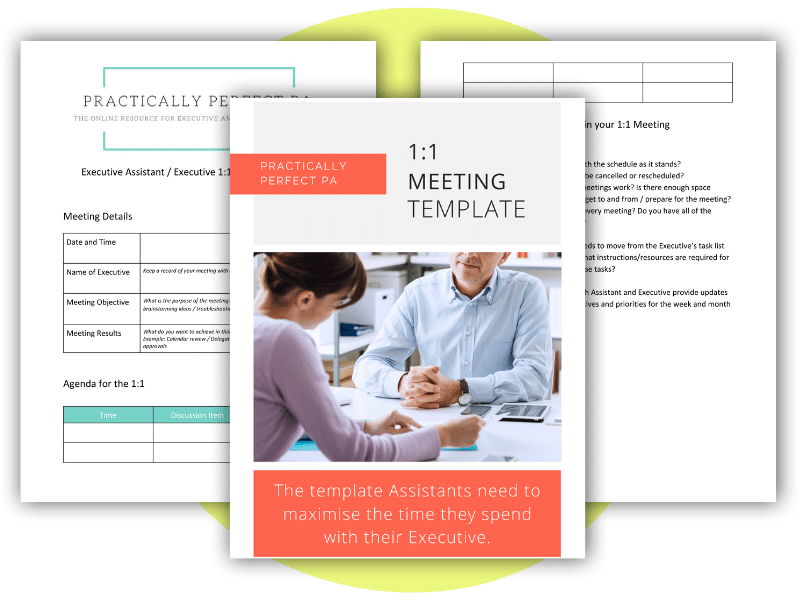Navigating the all-encompassing nature of the Assistant role
Being an Executive Assistant at the highest level of an organisation comes with its challenges and demands. The role requires exceptional organisational skills, the ability to handle various responsibilities simultaneously, and a deep understanding of the Executive’s needs and preferences.
In this article, we delve into our EA Campus Podcast interview with Ethan Bull, Founder of ProAssisting and Nicky Christmas, Founder of Practically Perfect PA and The EA Campus, to gain insights into the all-encompassing nature of the Assistant role and how assistants can navigate it effectively.
The all-encompassing role
In the interview, Ethan highlighted that working as an EA to high-level Executives, such as CEOs, can entail total commitment, with Assistants often having to be available even during personal time or vacations. While technology enables and facilitates remote access, the expectation of staying connected and addressing urgent matters as and when they arise persists. This expectation has become more prevalent in the post-pandemic world due to increased remote work and the need for quick decision-making and responsiveness. So how can Assistants thrive when working in an all-encompassing role?
- Prioritise self-care: In an all-encompassing role, it’s crucial to prioritise your well-being. Set boundaries, take breaks, and make time for activities that recharge you. Remember that taking care of yourself enables you to perform at your best.
- Develop excellent organisational skills: Strong organisational skills are essential to handle multiple responsibilities efficiently. Use calendars, to-do lists, and digital tools to stay organised and ensure nothing falls through the cracks. Streamline processes and establish effective systems to optimise your workflow.
- Cultivate effective communication: Clear and concise communication is paramount in an all-encompassing role. Ensure you understand instructions and expectations thoroughly. Be proactive in seeking clarification and provide regular updates to keep stakeholders informed.
- Foster relationships and network: Build strong relationships with colleagues within and outside your organisation. Networking allows you to tap into a more comprehensive support system, gain insights, and collaborate effectively. Cultivating positive relationships also enhances your professional reputation.
- Continuous learning and skill development: Stay updated with industry trends and enhance your skills through constant learning. Attend workshops, webinars, or conferences relevant to your field. Investing in your professional growth equips you with the knowledge and expertise to excel in your role.
Partnership and mutual respect
In the podcast, Ethan emphasised the importance of working for a principal who appreciates your hard work and acknowledges your contribution when navigating the all-encompassing nature of the Assistant role. A successful EA-Executive relationship should be built on mutual respect and trust. Executives who recognise the value of their Assistants and give them the freedom to execute their tasks effectively create a more productive and positive work environment. Partnerships based on respect and trust also garner admiration from colleagues and outsiders, setting a positive example within the organisation.
It’s essential to stand up for yourself and advocate for the respect and recognition you deserve as an Assistant. While it may take time and effort, asserting your value can help reshape the dynamics and foster a more respectful working relationship.
- Advocate for yourself: Speak up for yourself and assert your value as an assistant to the organisation. Highlight your skills, accomplishments, and your positive impact on productivity and efficiency. Educate your Executive about the importance of a supportive and respectful Assistant-Executive relationship.
- Seek support from colleagues: Reach out to other Assistants or colleagues within the organisation who may have faced similar challenges. Share experiences, seek advice, and learn from their strategies for dealing with executives who may not respect the assistant role. Collaborating with others can provide emotional support and practical solutions.
- Document and communicate: Record your tasks, accomplishments, and any instances where your role is undervalued or disrespected. Maintain a log of specific incidents or requests that are unreasonable or inappropriate. If necessary, communicate these concerns to a higher-level supervisor, HR department, or trusted mentor. Present your concerns professionally and factually to seek resolution or intervention.
Transitioning from toxic environments
During the interview, Ethan and Nicky acknowledged the prevalence of toxic behaviours in specific workplaces, where Assistants may face verbal or mental abuse. If you find yourself in that situation, it is always important to recognise your worth and know that you have the power to leave such environments. Through the #MeToo movement and increased awareness of how you should be treated in the workplace, Assistants have more avenues to speak out against abusive behaviour. The changing times are gradually shifting the dynamics and demanding better treatment for all professionals, including EAs.
Challenging yet rewarding Executives
In the interview, Ethan shared his experience working for a demanding Executive who was initially challenging but eventually became one of the best he had worked with. While it is essential to recognise and leave toxic situations, working for intelligent and fast-paced Executives can provide valuable growth opportunities. Such Executives can push Assistants to improve their skills, adapt quickly, and achieve a higher level of performance.
- Expectations and goals: Clarify their expectations and goals early on. Understand what they expect from you regarding tasks, deadlines, and deliverables. Align your efforts accordingly and seek clarification to avoid misunderstandings or mismatched expectations.
- Decision-making process: Observe how your Executive makes decisions. Are they decisive or indecisive? Do they seek input from others or prefer to make decisions independently? Understanding their decision-making process can help you anticipate their needs and provide the necessary support.
- Flexibility and adaptability: Challenging executives may have to change priorities or make sudden requests. Be prepared to adapt quickly to shifting demands and demonstrate flexibility in your approach. Develop resilience and the ability to handle unexpected situations with grace and efficiency.
Managing the Executive Assistant role requires much tenacity, flexibility and organisation. The challenges this role presents can be navigated with increased clarity and confidence if one takes the time to understand their capabilities and the individual needs of their Executive.
Moreover, accessing platforms such as The EA Campus gives broader perspectives on how an Assistant role should develop and be managed. At The EA Campus, we are adaptive to our members’ needs and offer additional resources such as podcasts which dive deep into crucial management skills, enabling members to personalise their approach further. So, take that step towards growth today by joining The EA Campus for exclusive access to these weekly podcasts filled with insight into managing all aspects of your Executives’ demands.





